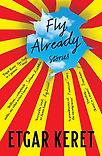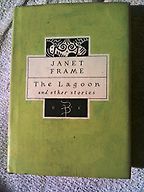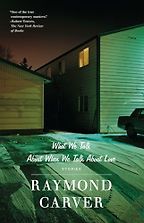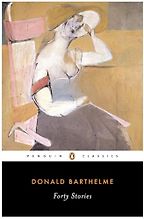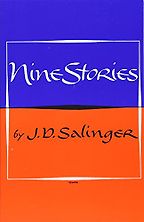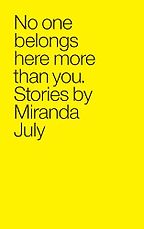What draws you to the short story as a form?
Everyone in the world can and does tell stories. So being a short story writer is like being a professional walker—everybody can walk. I like this.
When I write, I attempt to lose control rather than gain it. The short story allows this instinctiveness. I often tell my students that the difference between short story writers and novelists is the difference between farmers and hunter-gatherers. Agriculture requires a lot of work. You’re committed to the plant; you’re serving a process. When you write a short story, you’re very much like a hunter-gatherer. You say, “What’s this fruit? It tastes funny! This animal, I can run faster than it. Here’s a stick! I’m going to hit it on the head.” When I write a story and my character crosses the road, I honestly don’t know if they will be hit by a car or not.
A good story should always be smarter than the person who writes it. Because if you write a story and it’s as smart as or less smart than you are, then you are not writing a story—you are building IKEA furniture. My entire relationship to every story is: I write stories to try and discover something that I don’t know. I write because I want to go on an adventure; I don’t write to tell you an adventure I’ve already had. When something surprising happens in my story, the reader can sense my surprise, too.
That element of surprise is something you say you find in Janet Frame’s short stories in Lagoon and Other Stories. Let’s talk about that.
A word about Janet Frame—she was famously hospitalized, and they were going to give her a lobotomy, which was the way they treated those psychiatric issues in the 1950s. One of the doctors happened to hear that she was a writer [and had been awarded a prestigious literary prize], and he said, “I cannot lobotomize this woman.” Janet Frame eventually became New Zealand’s most prominent writer. The connection between madness and writing in her work is very interesting. She writes as if trying to dig something clear of obscurity, or cut through an emotion to see what lies underneath.
There’s a sense of anticipation, of waiting, whenever she writes a paragraph, to discover what’s going to happen in the next paragraph. The excitement of listening to Janet Frame tell you a story is the opposite of what writing workshops teach you about writing as a craft—this idea that you should be in control, you should be able to explain yourself, you should choose the best formulated sentence.
I’m reminded of another Janet Frame story, written a little later than the stories in Lagoon. In “You Are Now Entering the Human Heart,” the story of the frightened school teacher is told from the perspective of a different person, the narrator making her way through the museum.
When I read a story like that, my first feeling is that the writer trusts me. I once did an event with a writer who said that for him, the relationship between the writer and the reader is the relationship of a couple in a BDSM relationship. He said, “As a writer, I control the reader. I scare them and then I let them go.” My love for writing comes from exactly the opposite thing. I don’t want a wonderful puppet master of a writer to put me in a rat maze. I want to feel that we’re crushed together, we’re laughing together, we’re doing something together. I think writers like Janet Frame really give you that feeling.
The next collection of short stories you’re recommending is Raymond Carver’s What We Talk About When We Talk About Love.
What attracted me to Raymond Carver was his minimalism. It was partly his, and partly his editor Gordon Lish’s suggestions. But there’s something in the way that Carver tells a story that reminds me of the way my mother told stories. My mother was a child of the Holocaust, and when she told stories, they were never contextualized.
She would say, “During the war, I was once in a room, and this guy with a very long coat—a tall man—came in and started talking in this funny language.”
I’d say, “Which city were you in? Was it German? Was the coat a military coat?”
She would reply: “Is this important? If I said it was in Krakow, would it help you with the story? Come on, I’m telling you a story!” This created for me a model of storytelling in which the most important thing is the emotional anchor.
In Carver’s stories, the characters have no name. We’re in the suburbs, but you don’t know which city. Carver’s claim for something being real is not an ontological claim. He’s saying, “This is how a guy who drank two bottles of whiskey would talk to his overachieving brother.” That’s what’s important. Not that one man’s name is Stanley, and the other guy is called Jake. Carver is always saying, “I’m taking a layer off, so we’ll be closer to the flesh, we’ll be closer to the nerves. We’re going to leave formal structure behind and deal with the real stuff.”
Like Carver (and you, and some of these other recommendations), Donald Barthelme was frequently published in the New Yorker. Let’s talk about his collection Forty Stories.
If we’re talking about the New Yorker, I do want to say that Deborah Treisman is the best editor I have ever met.
She mentioned on the Fiction podcast that more writers choose Barthelme’s stories for the podcast than those of any other writer. So a writer’s writer, then.
I chose him because he strikes me as a searcher, very much like Janet Frame. It always seems to come from a desperate need to survive, to make sense of reality.
In my education I learned a lot of maths and physics, and there is something about his mode of exploring that is like an equation or a riddle. It’s a much more intellectual take on storytelling, even if he doesn’t know what he wants to say in advance.
“I write stories to try and discover something that I don’t know”
Once, when I was teaching at NYU, I wanted to read my students my favorite Donald Barthelme story, which is called “Chablis.” I went to the Strand and bought Forty Stories and a copy of one of my books. Two story collections. I was standing in line and the bookseller looked young, like a student.
He looked at the books I was buying and said, “Donald Barthelme and Etgar Keret. Wow! They’re my two favourite writers in the world.”
I said to him, “Yes, and I’m one of them!”
He looked at me and said, “That will be $29.95, please.”
People must walk into the Strand all the time, claiming to be famous writers.
With Barthelme, I was in excellent company. In Barthelme’s stories, if a character opens a door, there’s a sense that Barthelme will ask himself, “What is outside? Is there a world?” For him, writing is creating in a God-like manner. “I imagine a guy, and he’s in a room, and he’s falling. No! He can fly.” There is rationality and structure, but it’s unfolding something that is folded. Emotion is down there and you’re trying to pull it out by its hair, but the first things that come are ideas and logic and thoughts.
Let’s talk about Salinger. He’s obviously best known for Catcher in the Rye—readers might be less familiar with Nine Stories, his 1953 short story collection.
One of my all-time favourite Salinger stories is “The Laughing Man.” In the story, one of the characters is crushed because his girlfriend left him. He shares his emotional situation and heartbreak by telling stories to the children in his Comanche Club troop. The story is told from the perspective of a kid, who doesn’t fully understand what the storyteller is going through, but he’s moved emotionally by the story in which the laughing man dies.
I first read “The Laughing Man” when I was a high school student, before I began writing myself. And it struck me: this is a story about a kid being heartbroken because a heartbroken adult tells him a story. It’s transferring to me the heartbreak of Salinger, who made up both these characters. After that, I was never able to read a story without thinking of the frame through which the story is being told.
In the story, the laughing man is always making trips back and forth across the Paris-Chinese border, which obviously does not exist—the geography of the story is not the geography of the real world.
Exactly. The storyteller doesn’t convey knowledge. He doesn’t enlighten the children. His world is an emotional world. In “The Laughing Man,” what makes for a good story is the storyteller’s ability to share something intimate.
What drew you to this next collection of short stories, Miranda July’s No One Belongs Here More Than You?
I actually read it because we were both shortlisted for a short story collection prize. We were all going to be on stage together. It was almost an unfair way to read the book, because I knew I was reading it in a functional way. “I’m going to shake Miranda July’s hand and I don’t want to feel bad doing it.” And of course, we had both been shortlisted for the same prize. If it wasn’t good, my chances of winning the prize would be better. It was a bad way to be introduced to a book.
But from the first story I read in it, I was completely sucked in. It is both very, very earnest, and very, very quirky—an earnestness that leads you to very quirky places.
I can give you a couple of examples from the book. “The Moves” is a story about a woman whose father is about to die. He really wants to give her something before he dies, but he’s an uneducated ex-Marine, and the only thing he can think of is a technique for making a woman come. The story is all about him sharing with her something that, if she’s heterosexual, she probably won’t have any chance to use in her lifetime. But the fact that her father is giving her something makes the content he’s teaching her totally unimportant.
Like “Chablis” by Donald Barthelme, which you mentioned earlier, this is a story about the parent-child relationship as a primordial urge to share and be known.
When you tell a story, it’s all about sharing an experience. We can talk about high culture or ideology, but in the end, you’re basically a guest in somebody else’s mind. Fiction exists to train the muscle of empathy, which is the weakest muscle in the human body. “This is how I see things, but here’s a character who sees them differently.”
Tell me about the other story you have in mind.
It’s called “The Swim Team.” In it, the narrator has moved to the Midwest, very far from any water. She tells people that she used to swim, and they want her to teach them, so she gives swimming lessons on her carpet.
If you follow its emotional thread, it is really a metaphor for trying to share any experience with another person. Because in the end, they’re always swimming on your carpet. You’re the one who was in the ocean. They’ll never have the same experience, but there is something in this swimming on the carpet that pulls out a yearning to understand. Those people swimming on the carpet are the readers I wish for myself.
Five Books aims to keep its book recommendations and interviews up to date. If you are the interviewee and would like to update your choice of books (or even just what you say about them) please email us at [email protected]
Five Books interviews are expensive to produce. If you've enjoyed this interview, please support us by donating a small amount.

